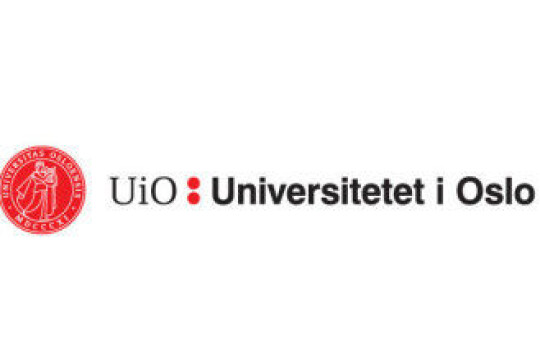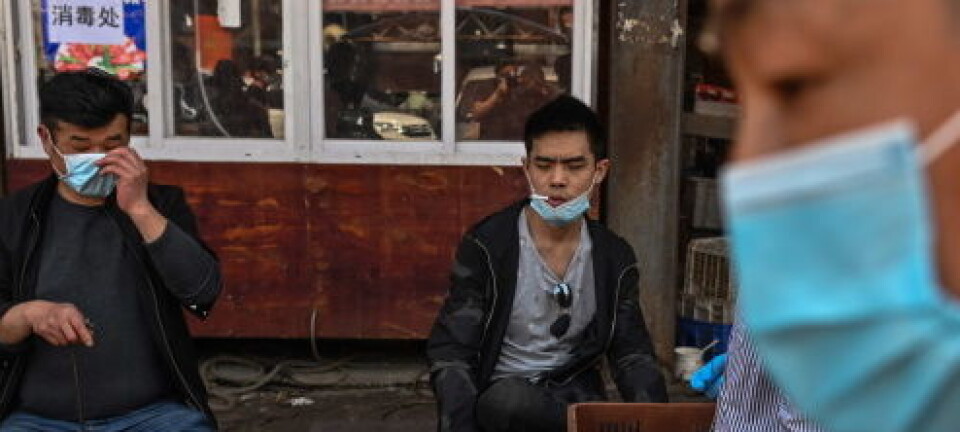This article is produced and financed by University of Oslo - read more
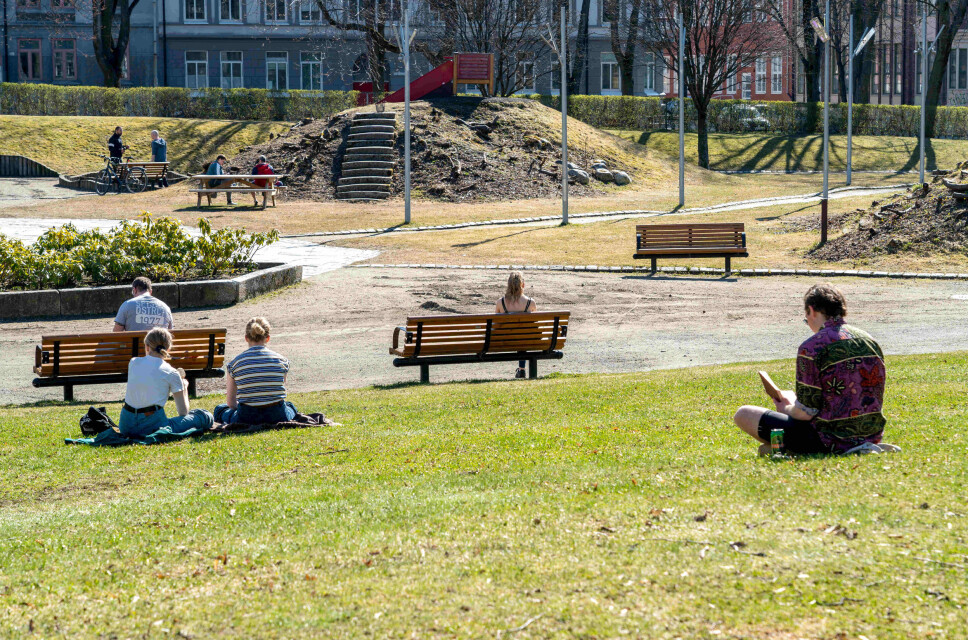
The world with viruses: People who already had a hard life will probably come out worst from this crisis
"The quality of life in Norway is already unequally distributed. And the marginalized groups are going to increase in the wake of the Corona pandemic," says Ragnhild Bang Nes.
Ragnhild Bang Nes is Associate Professor at the Department of Psychology, and one of the initiators of the PROMENTA Centre, a research environment which is established to provide new knowledge about mental health, quality of life and substance abuse. In addition, she is employed as a senior researcher at the Norwegian Institute of Public Health to conduct research on the conditions for a good life.
Based on her doctoral thesis on genetic predisposition towards subjective well-being, anxiety and depression, Nes has revealed that we are probably born to cope with crises such as the Corona pandemic, but certain people have a slightly better starting point than others.
”Everyone has a basic mood, a temperament, which makes us relatively stable over time. Some have a lighter temperament, others a darker temperament. We are constantly affected by crises and changes, but tend to gravitate towards this basic mood," she says.
The so-called five-factor model surveys five personality traits that everyone has, to a greater or lesser degree. Each of these five personality traits has six facets, and four of these again indicate, according to Nes, how well-equipped we are to have a positive view on life.
“If you have a low tendency to depression and anxiety, i.e. a low neuroticism factor, and a high tendency to extroversion factors, such as experiencing positive emotions and being active, vital and energetic, you have a good personal prerequisite for being able to experience happiness in life, even through difficult times. All of the above facets help maintain our social relationships, which is another very important factor both for the quality of life in general and for how we get through crises and challenges," she points out.
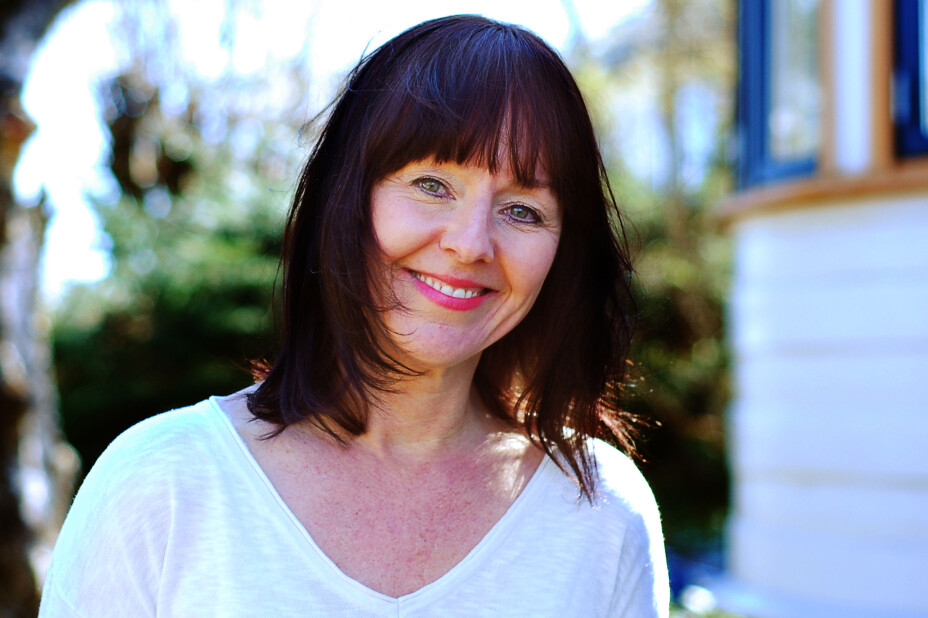
Five tips for overcoming the pandemic
For those with a somewhat darker personality, it is still possible to find a way to cope with the new everyday life.
According to Nes, by using simple techniques you can train your psychological immune system.
She makes reference to the five tips for everyday enjoyment developed by the British Health Authorities in 2008.
These have sprung out of research on quality of life, coping and mental health, and are inspired by the five-a-day diet campaign: What are the five most important measures we can take to strengthen our mental health?
- Create and maintain your relationships. It's about doing nice and good things together with and for others. What enables us to get through a crisis? We are gregarious animals, standing together is what is most important. We find support and happiness in each other, even digitally.
- Physical activity. Being active is a miracle cure for both health and quality of life. But you need to find an activity that suits your physical condition, interest and stamina, whether it's going for a leisurely walk through the park, a digital yoga class or running a marathon. An active body results in stronger mental health.
- Presence. It's about paying attention and being present in what's happening around you, but also in your inner experiences. You become less confused by your thoughts and feelings, if you manage to reflect on them.
- Learning something new. We have an inherent ability to develop ourselves, and we experience happiness when that ability is realized. Acquiring new knowledge and new skills brings us happiness, perhaps because learning has been so fundamental to our survival. Get to know a new author, try a new recipe or rediscover an old hobby.
- Giving and contributing. The corona crisis has shown us how people derive happiness from helping each other. We can experience deep satisfaction by staying at home in solidarity with the risk groups, or by offering to help with shopping, for example. Contributing leads to an increased quality of life, for both the donor and the recipient, and the activity thus also builds relationships, which in turn increases the quality of life.
Healthy anxiety
Espen Røysamb is a Professor at the Department of Psychology and as head of the PROMENTA Centre, he cooperates closely with Ragnhild Bang Nes.
Røysamb also believes the five tips from the UK are important measures in the face of the inevitable negative emotions that news of the virus threat produces in us. He states that unrest, anxiety and depression are completely natural reactions associated with such an emergency, like the one we are now experiencing.
“If we are faced with a danger, whether it be a lion, a tsunami or a virus, the negative emotions have the job to protect us. Being afraid is a functional reaction. We don't meet more than five people, we wash our hands all the time. Partly because the authorities have told us to do so, but also because we are afraid," he says.
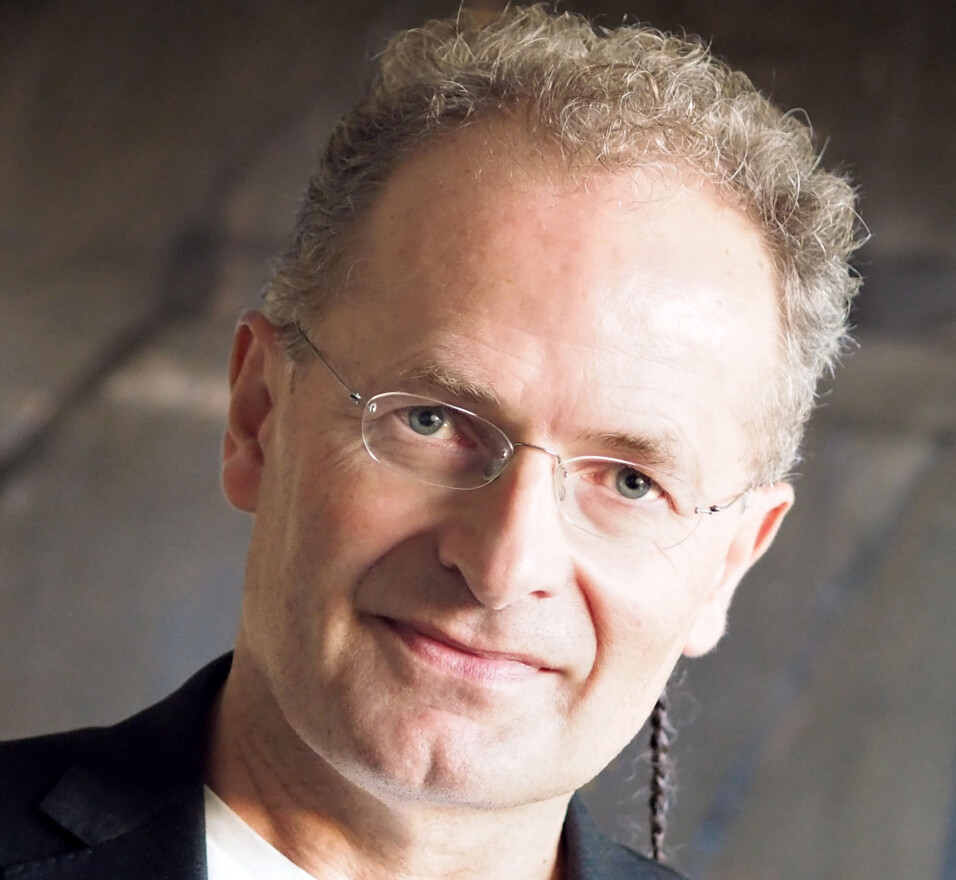
The problems arise when the experience of danger becomes prolonged. Røysamb points out that the negative emotions such as anxiety, fear and anger can also become persistent. In addition, with a constantly high level of anxiety, we tend to overthink and brood, we are constantly on the alert, and this in turn can lead to problems such as difficulty sleeping, increased alcohol use, concentration problems or withdrawal," he states.
“You need some respite from these concerns, not least because this situation is going to last quite a while.
Especially if you have a lot of time on your hands. Maybe you can learn something new, for no other reason than to focus your attention on something else instead of the corona crisis. Do jigsaw puzzles, go for another run, participate in a mindfulness course, learn how to knit or learn a language via an online course," says Røysamb.
The corona situation is relevant for several of the areas that the PROMENTA Centre is already researching. They are planning to conduct studies that will look at social isolation, friendship, risk perception, protective behaviour, quality of life and resilience.
“We will collect data during the pandemic to understand psychological reactions and patterns of behaviour. In addition, it will be important to lay the foundation for new research on life post-corona," says Røysamb.
Collecting data from the pandemic
The researchers at PROMENTA are keen to create new knowledge about the processes that hinder and promote quality of life, and how social and geographical differences in mental health occur.
Ragnhild Bang Nes is in the process of working on a large dataset on quality of life, from a survey conducted by the Norwegian Institute of Public Health, Statistics Norway and Kantar during 2019, and later in February 2020. Quality of life data from more than 100,000 Norwegians were collected before the corona pandemic. The last survey received responses from 24,000 people in Nordland county, just weeks before the corona lockdown. In addition, between 9th and 29th May comprehensive quality of life data were collected from more than 17,000 people nationwide.
"In cooperation with SINTEF, the Norwegian Institute of Public Health plans to collect new data from several counties this May and again during the autumn. Thus we can compare and follow the development over time for the same people," says Nes.
"This and other quality of life surveys can help us understand who is struggling the most and who is coping best, why and in what way? This can give us an important insight into the measures and municipal circumstances that promote or inhibit quality of life both now during the corona crisis and in the time to come, and make us better able to identify challenges and opportunities. With such knowledge available, local authorities can optimally facilitate the period after the corona pandemic, in the given regional context," she says.
Inequality in the country of happiness
Ragnhild Bang Nes does not want to be called a "happiness researcher", even though she has often been described as such. Both at the Norwegian Institute of Public Health and through her work at the Department of Psychology, she has carried out research on the quality of life. There is a significant difference between happiness and quality of life as we prefer to use the terms, says Nes.
“Good quality of life consists of many different factors such as meaningful activity, experience of happiness, freedom and security, in addition to having acceptable economic conditions. Quality of life is contingent on good living conditions. Politics therefore play an important role, even with regard to subjective quality of life.
The concept of quality of life emphasizes the importance of this totality and the importance of living conditions," says Nes.
Nonetheless, Norway is often referred to as a country of happiness: Norwegians score an average of 7.5 points on a scale of 0 to 10 when the World Happiness Report ranks more than 150 nations based on the life satisfaction of its inhabitants. Low social inequality, high social support and a high degree of trust are factors that are often highlighted as characteristics of the countries that secure top positions in the rankings.
In spite of this, there are many who are not doing well. Sixteen per cent of the population in Norway report that they find their life very challenging, according to the 2019 public health survey in the counties.
”That's a small percentage. However, if you examine the groups in society who are either laid off, unemployed, disabled or receiving social assistance, you will find that 40 to 65 per cent of these say they experience a low quality of life.
To put it another way: The quality of life in Norway is unequally distributed. And these groups are going to increase in the wake of the corona pandemic," says Ragnhild Bang Nes.
Post-corona
People who already had a hard life will probably come out worst from this crisis, according to Nes. This is the case for precisely those groups in society that lack the necessary competence and resources for adaptation. She points out that further marginalisation is also dangerous from a socio-economic perspective.
"Inequality creates physical and mental health problems and can contribute to conflict, unrest and polarization, which in turn lowers the level of trust in the population. If many people are left without a permanent job, it will be detrimental to the economy, the national health service and democracy.
The British think tank The New Economics Foundation has highlighted ensuring qualitatively good workplaces as one of the most important health measures a society can implement," she says.
Nes maintains that the objective of the research at PROMENTA is precisely to study the processes that lead to differences in health and quality of life. "And what measures can improve our living conditions and contribute to a positive development, for everyone," she says.
"Once the dust has settled after the corona pandemic, we can hopefully contribute with knowledge that can help stabilise living conditions and develop society, the local environment and our resources in an even better way," says Nes.
A common enemy
Nes is keen to draw lessons from past crises. To understand the financial crisis of 2008, she refers, among other things, to the Canadian economist John F. Helliwell, as being one of those with the greatest knowledge of the impact of the economic downturn of 2008-2009 on people's experience of quality of life.
Based on quality of life data from the European Social Survey and the Gallup survey, Helliwell concluded that most people handled the financial crisis surprisingly well despite a temporary drop in satisfaction.
"The populations of Ireland and Iceland, countries that were particularly badly affected by the recession, have been high on the happiness ratings, possibly due to relational factors. Among Icelandic youth, the quality of life actually increased in the measurements," says Nes.
Ragnhild Bang Nes believes that the explanation is to be found in that people pull together in times of crisis.
“It's impressive to see: When crises arise, people pull together.
Many people experience an increased sense of belonging and solidarity during crises. Traditional boundaries are erased in the fight against a common enemy.
Naturally, every crisis has different stages, and solidarity can be subjected to wear and tear in the long term. But solidarity is vital to quality of life, she says.
“ People have an outstanding ability to adapt. Adaptation is the basis of success throughout the history of development. We get through crises and recover from defeat. Crises generally also create new solutions, creativity and innovation. An important question now is how we as researchers can obtain the best possible knowledge that society can apply when the post-corona challenges are to be solved," says Nes.
———
Read the Norwegian version of this article at forskning.no







